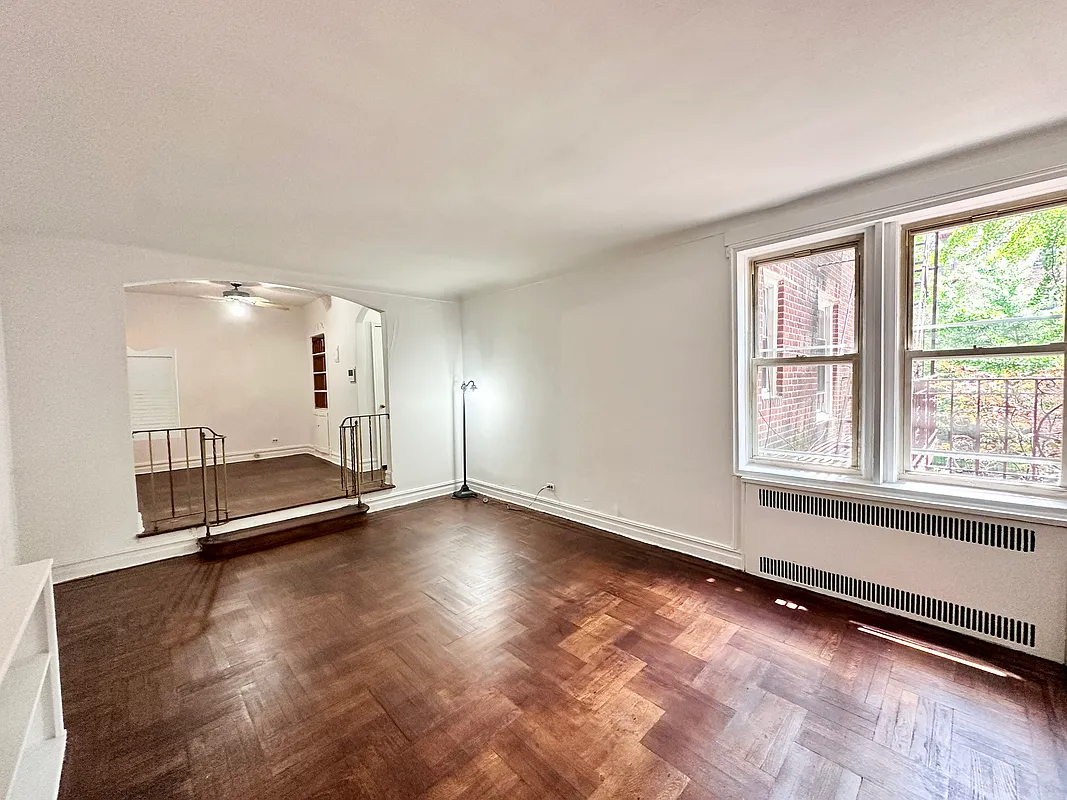Big NYC Landlord Proposes 'Payment Plans' to Solve Looming Rent, Tax Crisis
The current approach is short sighted and will result in “less revenue for the government and massive displacement,” according to Francis Greenburger of Time Equities.

Bushwick. Photo by Cate Corcoran
The current approach to missed rent payments caused by the coronavirus shutdown is short sighted and will result in “less revenue for the government and massive displacement for millions of Americans,” according to Francis Greenburger, founder and chairman of Time Equities, the large Manhattan-based developer and landlord.
The temporary moratorium on evictions, in particular, has led tenants who can pay to think rent has been cancelled, he said. This has caused a financial crisis for many landlords, “especially small-scale property owners.”
The solution? Greenburger proposes government-sponsored payment plans that would require tenants to pay missed back rent over a year and allow landlords to defer tax payments until back rent is paid. Below is his statement in full. What do you think?
Government Solution Is Needed for Property Owners and Renters
The anxiety and concern driving the #cancelrent movement is real and justified, but giving rent relief to those that don’t need it makes no sense. Those requesting relief should be asked to provide financial information backing up their request and those that need it should receive it.
However, canceling rent without subsidizing the lost rental income to property owners will only make matters worse. Without rental income, eventually property owners will be unable to pay the millions of Americans they employ, including essential workers who clean and maintain the places millions more live, work and shop. They also may be unable to pay utilities, maintenance costs and most importantly, property taxes, which fund many of the municipal and social programs upon which we all depend.
Instead of being the enemy, property owners are an essential part of the solution. Bankrupting tens of thousands of property owners and sending many properties onto the foreclosure rolls will cripple the ability of property owners to support a solution, exacerbate housing insecurity for tenants, and saddle government, at least for a time, with properties they have no capacity to manage.
The only viable solutions are those that keep tenants in their homes and businesses, and landlords managing properties. Government must make sure both happen. Ignoring the problem or worse, offering a partial solution and pretending the problem is solved will only result in less revenue for the government and massive displacement for millions of Americans at a time when we can all least afford it.
Governmental proclamations that provide for a temporary hold on evictions solve only half the problem. These solutions are at best short lived and certainly short-sighted, not to mention confusing for the public. Ninety-day temporary eviction relief has led to a widespread misunderstanding that rent relief, or rent forgiveness, was also offered for 90 days. As a result, rent collections have dropped, even among people who can afford to pay rent. In turn, owners’ ability to meet their own financial obligations has already reached a crisis point for many, but especially small-scale property owners.
Instead of this one-sided approach, government should sponsor comprehensive programs for tenants and property owners, authorizing both to enter into payment plans. Under this scenario, tenants would be permitted to pay off their missed rent over the next year and property owners would in turn receive real estate tax deferral in the amount of the deferred rent payments. Property owners would then repay taxes to the government on a monthly basis once rental income begins to be repaid. Working together, such a plan could keep tenants sheltered, while keeping property owners and the city ultimately whole.
For those who can pay, they should. Tenants who can still pay rent, even those who are unemployed due to COVID-19, should be obligated to pay at least 30 percent of all income they are receiving, including unemployment benefits, interest and dividends, savings in excess of two years of rent, to fulfill their rent obligations.
In either case, property owners in buildings with 10 or more units should also offer tenants the ability to pay rent by credit card and cover the tenant’s cost of the associated credit card fees for those unemployed due to COVID-19.
Finally, to help ensure that these admittedly complicated and novel approaches are effectively implemented, the City should create a stakeholders task force allowing property owners, labor, lenders, utilities, tenant advocates and city government to come together to prevent a housing crisis on a scale we have never encountered.
Measures that put the full burden of providing housing on either property owners or those without means, will work for no one. Government must be part of a comprehensive solution instead of addressing only half of the problem.





What's Your Take? Leave a Comment